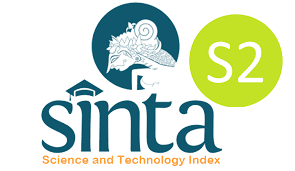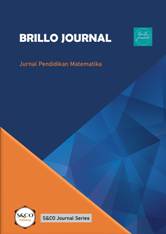Secondary School Students Self-Regulated Learning Skill as Predictor of Mathematics Achievement in Imo State Nigeria: Focus on Gender
DOI:
https://doi.org/10.56773/bj.v2i2.36Keywords:
Academic Achievement, Gender, Mathematics, Self-Regulated Learning SkillAbstract
Mathematics as an abstract subject, requires the application of cognitive strategies such as self-regulated learning skill to predict students’ achievement. This paper was designed to investigate the secondary school students self-regulated learning skill as a predictor of mathematics achievement with respect to gender. A correlational survey research design was employed. The sample size consisted of 882 senior secondary students class two (SSII) randomly selected from 14 out of 124 public senior secondary schools in Owerri Education Zone of Imo State. Two different instruments were used for data collection. They are Questionnaire on Self-Regulated Learning (QSRL) and Mathematics Achievement Proforma (MAP). Three experts validated the instrument. The Cronbach Alpha calculated yielded a reliability coefficient of 0.89 for QSRL. The data collected were analyzed using Pearson Product-moment correlation coefficient and regression analysis with the aid of Statistical Package for Social Sciences (SPSS) version 20. The findings revealed that self-regulated learning skills significantly predict male students’ achievement in mathematics. The findings also showed that self-regulated learning skill does not significantly predict female students’ achievement in mathematics. It was recommended among others that secondary school students should regulate their learning to increase their mathematics achievement.
References
Adetula, L. A., & Akinbobola, A. O. (2017). Gender differences in mathematics achievement and self-regulated learning among secondary school students in Ondo State. Journal of Education and Practice, 8(24), 58-65.
Adegoke, B. A., & Adeneye, O. A. (2020). Gender and Mathematics Achievement among Secondary School Students in Nigeria. Journal of Education and Practice, 11(25), 129-133.
Al-Hmoud, A. A., & Albalawi, M. S. (2018). The role of self-regulated learning in predicting mathematics achievement among female students at a Jordanian University. International Journal of Academic Research in Business and Social Sciences, 8(11), 1832-1840.
Awofala, A. O., Lawal, R. F., Arigbabu, A. A., & Fatade, A. O. (2022). Mathematics productive disposition as a correlate of senior secondary school students’ achievement in mathematics in Nigeria. International Journal of Mathematical Education in Science and Technology, 53(6), 1326-1342. https://doi.org/10.1080/0020739X.2020.1815881
Best, J. W. & Kahn, J. V. (2013). Research in Education (10th ed.). Prentice-Hall.
Bong, M. (2008). Effects of parent-child relationships and classroom goal structures on motivation, help-seeking avoidance, and cheating. The Journal of Experimental Education, 76(2), 191-217. https://doi.org/10.3200/jexe.76.2.191-217
Chartered Institute of Personnel Management of Nigeria. (2019). Employability skills survey report. https://www.cipmnigeria.org/index.php/cipm-releases-the-2019-employability-skills-survey-report/
Cleary, T. J., & Kitsantas, A. (2017). Motivation and self-regulated learning influences on middle school mathematics achievement. School Psychology Review, 46(1), 88-107. https://doi.org/10.1080/02796015.2017.12087607
Dawn, P. (2012). Developing mathematical self-regulatory skill and its relationship to academic motivation. Journal of Educational and Developmental Psychology, 2(1), 72-79.
El-Adl, A., & Alkharusi, H. (2020). Relationships between Self-Regulated Learning Strategies, Learning Motivation and Mathematics Achievement. Cypriot Journal of Educational Sciences, 15(1), 104-111. https://doi.org/10.18844/cjes.v15i1.4461
Else-Quest, N. M., Hyde, J. S., & Linn, M. C. (2010). Cross-national patterns of gender differences in mathematics: A meta-analysis. Psychological Bulletin, 136(1), 103-127. https://doi.org/10.1037/a0018053
Erdem Keklik, D., & Keklik, İ. (2013). Motivation and Learning Strategies as Predictors of High School Students' Math Achievement. Cukurova University Faculty of Education Journal, 42(1), 96-109.
Federal Ministry of Education. (2013). National Policy on Education. https://education.gov.ng/wp-content/uploads/2019/02/National-Policy-On-Education-2013.pdf
Gunderson, E. A., Ramirez, G., Levine, S. C., & Beilock, S. L. (2012). The Role of Parents and Teachers in the Development of Gender-Related Math Attitudes. Sex Roles, 66(3-4), 153-166. https://doi.org/10.1007/s11199-011-9996-2
Karimi, S., & Venkatesan, S. (2017). Exploring the relationship between self-regulated learning strategies and academic achievement in mathematics. International Journal of Educational Research, 83, 99-107.
Kilpatrick, J., Swafford, J., & Findell, B. (Eds.). (2001). Adding It Up: Helping Children Learn Mathematics. National Academies Press.
Ma, X., & Klinger, D. A. (2019). The role of self-regulated learning in predicting mathematics achievement of middle school students: A longitudinal investigation. Learning and Individual Differences, 70, 159-167.
Metallidou, P., & Vlachou, A. (2007). Motivational beliefs, cognitive engagement, and achievement in language and mathematics in elementary school children. International Journal of Psychology, 42(1), 2-15. https://doi.org/10.1080/00207590500411179
National Bureau of Statistics. (2018). Education Statistics in Nigeria. https://www.nigerianstat.gov.ng/pdfuploads/Education_Statistics_in_Nigeria_2018.pdf
National Examinations Council. (2020). NECO Releases 2020 June/July SSCE Results. https://www.neco.gov.ng/2020/11/18/neco-releases-2020-june-july-ssce-results/
National Mathematics Centre. (2019). Strategic Plan 2019-2023. National Mathematics Centre.
Ndidi, M. A., & Effiong, I. E. (2020). Influence of Classroom Environment on Senior Secondary School Students' Academic Achievement in Mathematics in Calabar Nigeria. Educational Research and Reviews, 15(8), 495-503. https://doi.org/10.5897/err2020.3983
Nigerian Mathematical Society. (2017). The Importance of Mathematics. http://nigerianmathematicalsociety.org/importance-of-mathematics/
Odeleye, D. A., & Adeyemo, S. A. (2016). Gender differences in self-regulated learning in mathematics among secondary school students in Ibadan metropolis. African Journal of Educational and Social Science Research, 5(2), 61-68.
Odinko, M. N., & Uzorh, P. C. (2018). Gender Differences in Self-Regulated Learning among Secondary School Students in Ebonyi State. Journal of Education and Practice, 9(10), 21-26.
Perry, N. E., Phillips, L., & Hutchinson, L. (2006). Mentoring student teachers to support self-regulated learning. The Elementary School Journal, 106(3), 237-254. https://doi.org/10.1086/501485
Pintrich, P. R., & De Groot, E. V. (1990). Motivational and self-regulated learning components of classroom academic performance. Journal of Educational Psychology, 82(1), 33-40. https://doi.org/10.1037/0022-0663.82.1.33
Salami, W. O., & Ibijola, A. S. (2021). The relationship between mathematics teacher efficacy and students' academic performance in secondary schools in Nigeria. Journal of Education and Practice, 12(6), 165-173.
Spencer, S. J., Steele, C. M., & Quinn, D. M. (1999). Stereotype threat and women's math performance. Journal of Experimental Social Psychology, 35(1), 4-28. https://doi.org/10.1006/jesp.1998.1373
Stoet, G., & Geary, D. C. (2018). The gender-equality paradox in science, technology, engineering, and mathematics education. Psychological Science, 29(4), 581-593. https://doi.org/10.1177/0956797617741719
Ugwuanyi, C. S., Okeke, C. I., & Asomugha, C. G. (2020). Prediction of Learners' Mathematics Performance by Their Emotional Intelligence, Self-Esteem and Self-Efficacy. Cypriot Journal of Educational Sciences, 15(3), 492-501. https://doi.org/10.18844/cjes.v15i3.4916
West African Examinations Council. (2020). Summary of the Chief Examiners' Report on the May/June 2020 WASSCE. https://www.waecdirect.org/download/WASSCE_SENIOR_REPORT_2020.pdf
World Health Organization. (2022). Gender and Health: Gender Concepts. https://www.who.int/health-topics/gender#tab=tab_1
Zakeri, H., & Ghonsooly, B. (2018). The role of self-regulated learning in mathematics achievement: A gender perspective. The Asia-Pacific Education Researcher, 27(2), 97-107.
Zimmerman, B. J. (2002). Becoming a self-regulated learner: An overview. Theory into practice, 41(2), 64-70. https://doi.org/10.1207/s15430421tip4102_2
Zimmerman, B. J., & Kitsantas, A. (2005). Homework practices and academic achievement: The mediating role of self-efficacy and perceived responsibility beliefs. Contemporary Educational Psychology, 30(4), 397-417. https://doi.org/10.1016/j.cedpsych.2005.05.003
Downloads
Published
How to Cite
Issue
Section
License
Copyright (c) 2023 Darlington C. Duru, David O. Mba, Iheanacho C. Ike

This work is licensed under a Creative Commons Attribution 4.0 International License.
The authors agree that this article remains permanently open access under the terms of the Creative Commons Attribution 4.0 International License






